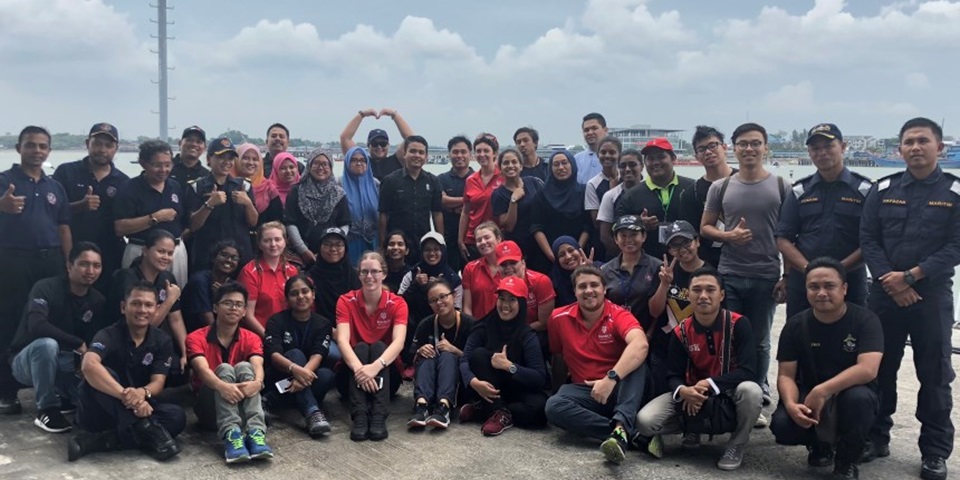News
Forensic students learn cross-cultural CSI skills in Malaysia

Five of Murdoch University’s forensic students have just returned from an information-fuelled fortnight at Malaysia’s National University, exploring how the nation carries out its forensic investigations on various types of crime scenes.
The “Breaking down barriers for justice: an intercultural approach to crime scene investigation” program was coordinated by Murdoch University forensics lecturer Dr Paola Magni, in collaboration with Universiti Kebangsaan Malaysia (UKM) counterpart, Dr Raja Zuha.
“The aim of the program was to provide a unique opportunity for forensic students to apply their knowledge from their undergraduate studies to investigate forensic scenes in a different geographical region, following different rules, laws and protocols, and collaborating with fellow students and experts from different cultures and backgrounds,” Dr Magni said.
The students, who are in their final year of their Forensic Biology and Toxicology course stayed on the UKM campus, located in the city of Bangi, Selangor, and participated in a program of events and learning experiences with fellow Malaysian forensics students.
Throughout the fortnight, they visited various centres of forensic expertise, including the Malaysian Maritime Enforcement Agency; Royal Malaysian Police forensic labs; and the National Wildlife Forensic Laboratory, which specialises in investigating crimes against animals.
They also received briefings, presentations, and simulations from various experts in the field, on topics including “Crimes that Shook Malaysia” by the former head of CSI with the Selangor Police and “CSInsects and their effects on animal decomposition” by Dr Raja Zuha of UKM Forensics and Dr Paola Magni.
A range of crime scene scenarios were also set up for the students to investigate, working together to formulate conclusions about what had occurred.
“Insects can be a pest for an investigation, however if a forensic scientist can read the key left by the insects it is possible to use them to trace information that was lost in the decomposition process,” Dr Magni said.
The students also had the opportunity to socialise with their fellow forensic students of UKM and immerse themselves in the Malaysian culture, participating in the Eid Mubarak festival; learning about traditional Malaysian costume and cuisine; and taking a tour of the Malaka historical precinct.
Dr Magni said the experience was of great benefit for both the Australian and Malaysian students who took part, in addition to staff of both universities.
“We were able to make a critical comparison between the forensics degree courses of both institutions, underlying the strengths and weaknesses of each, and identifying the ways to improve both programs,” she said.
“Apart from academic perspectives, students and staff from both universities have developed long-lasting connections with one another.”
The program was funded by the Australian Government’s New Colombo Plan, which aims to increase Australia’s knowledge of the Indo-Pacific through supporting undergraduate students to undertake internships in the region.
“Both Murdoch and UKM Forensics want to make forensic science a sustainable learning experience by continuously introducing new experiences for the students – and the New Colombo Plan provided us with the best platform to collaborate internationally,” Dr Magni said.
“The fact the Australian government funded our project reflects the momentum that forensic science is living now - it’s time to come out of the labs and give students an interdisciplinary and international experience.”
Dr Magni and Dr Zuha are currently making arrangements for the Murdoch forensics students’ visit to UKM to become an annual event, with the support of both universities.
“We would welcome this opportunity, as it brings with it unique benefits for the students both personally and professionally, allowing them to experience how research is carried out in the rest of the world in preparation for them to assist in investigations where they are needed and discover what they can offer,” Dr Magni said.
Image caption: Murdoch and Malaysian forensics students visited the Malaysian Maritime Enforcement Agency to learn more about crime scene investigations at sea.
News
Forensic students learn cross-cultural CSI skills in Malaysia
Posted on